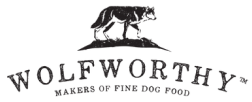
What Should I Feed My Dog? The 5 Most Important Things to Check on Your Dog's Food Label
Without a doubt, the food you feed your dog is the most important factor in their life. The food they eat has to give them everything they need: from the energy needed to run, skip and jump to the crucial nutrients that make up the correct functioning of all their organs and bodily process. If these nutrients get out of balance problems will start to show up. Diet is the most important factor and it is the one that is under the complete control of the owner. Choose wisely.
But with hundreds of brands available how do you choose which is the best choice for your dog? Don't worry, we have written a handy guide showing you what are the 5 most important things to check on your dog's food label to ensure a healthy and long life or your dog.
1. High Meat Percentage
It makes sense that feeding dogs the food that they evolved to eat is the best way to ensure a long and healthy life. Their ancestor, the Grey Wolf eats a diet high in meat, organs, cartilage, fat and bone. Dog foods that are high in quality meat content are naturally better for your dog.
In the wild, dogs and wolves would eat a from a wide source of animal protein, fish, fowl, deer etc. Look for foods that offer a variety of meat sources. These meat sources should clearly state the animal it is from.
2. Natural Food
Examine the label to ensure that the ingredients are free from all artificial preservatives, antioxidants, colourings and flavourings. Artificial preservatives like Sodium Tripolyphosphate (E451) have been listed as a possible neurotoxin, Propyl Gallate (E310) is suspected of contributing to cancer and Ethoxyquin (E324) has been linked to allergic reactions, skin disease, behavioural problems and worse.
3. Hypoallergenic
Your dog's intolerance to certain ingredients can show up in various ways, itchy skin, diarrhoea, flatulence and even vomiting. A hypoallergenic dog food avoids ingredients which are regularly linked to allergies and intolerances like, grain, dairy products, soya products and artificial additives.
4. Grain Free
Grain is not an optimal food for dogs or wolves. It is generally only included in dog food as a cheap filler, providing lots of calories with little nutritional benefit. Although some dogs may tolerate grain in their diet, many will have digestion problems leading to chronic diarrhoea or gas. More seriously many dogs can suffer from allergic reactions including itchy skin and licking their feet. Even though grains such as wheat or corn are well known allergens there are others such as rice, barley and oats which could be causing an allergic reaction and are therefore best avoided.
5. Clear Labelling
Question: How can you select a dog food based on how good it's ingredients are if the contents label is unclear, obscure, confusing or vague? Answer: You can't. But this is how many dog food companies label their dog food. Look for clear unambiguous terms like "25% Chicken", or "14% Sweet Potato" rather than umbrella terms like "meat and animal derivatives", "Vegetable protein extracts" or "various Sugars".
Qty :
Qty :









